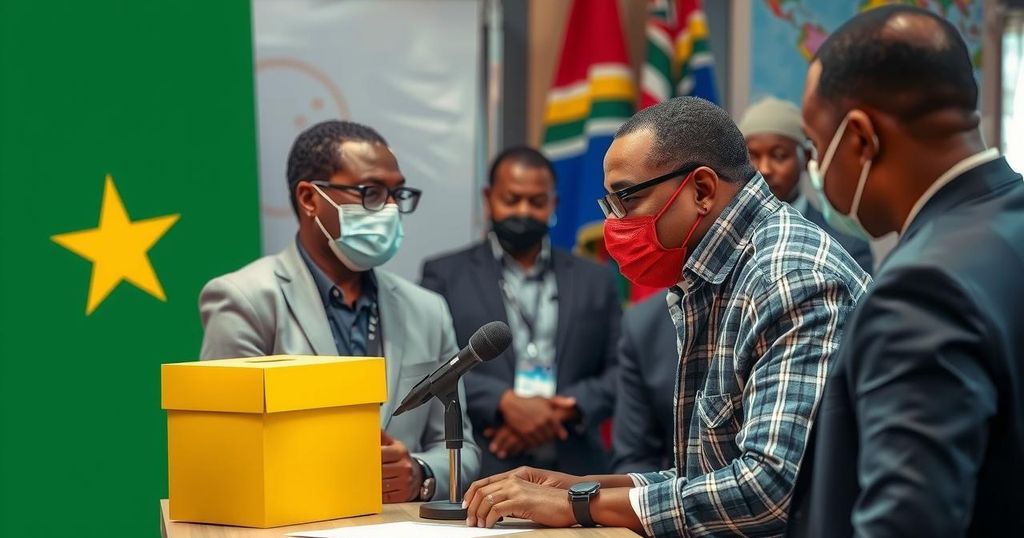Namibia Extends Voting Period Amid Allegations of Electoral Fraud and Discontent

Namibia has extended voting for its presidential election due to ballot paper shortages, raising allegations of electoral fraud from the opposition. This decision comes amid growing frustration among voters and highlights economic discontent, especially among the youth in a country rich in resources yet facing high unemployment.
Namibia has decided to extend its presidential election voting period due to significant shortages of ballot papers, prompting accusations of electoral fraud from the main opposition party, the Independent Patriots for Change. Originally scheduled to conclude on Wednesday, polling will now continue until Saturday night in response to logistical challenges faced at various polling stations. The Extended voting has raised concerns over the legality of the extension amidst a backdrop of broader electoral turmoil in the southern African region.
The elections feature Namibia’s Vice President, Netumbo Nandi-Ndaitwah, who is the candidate for the ruling South West Africa People’s Organization (SWAPO). Should she succeed, she would be Namibia’s first female president. However, discontent among the country’s youthful population, affected by high unemployment despite the nation’s mineral wealth, poses a formidable challenge to SWAPO’s prolonged reign since independence.
Numerous voters expressed frustration over the ongoing situation, with many being unable to cast their votes as they encountered long lines at polling stations. Electoral Commission chairperson Elsie Nghikembua attributed the delays to logistical issues. Despite reassurances from officials that ballot papers were on their way, skepticism remained high among voters, some of whom had spent days attempting to participate in the electoral process.
Namibia’s electoral process, historically seen as credible, is currently facing significant challenges due to mismanagement of resources during the voting period. The 2024 elections occur against a backdrop of social discontent, particularly among the youth, who are frustrated by economic hardships despite the country’s mineral riches. The history of SWAPO’s governance and its implications for Namibia’s political landscape highlight the importance of these elections, as they may resonate deeply within broader regional trends of electoral change in southern Africa.
The decision to extend voting in Namibia’s presidential election raises essential questions about electoral integrity and management. While officials cite logistical challenges as the reason for the extension, opposition complaints regarding allegations of fraud highlight the tensions present in the electoral landscape. As the nation grapples with high unemployment and economic disparity, the outcome of this election may significantly influence Namibia’s political future and the stability of its democracy.
Original Source: apnews.com







